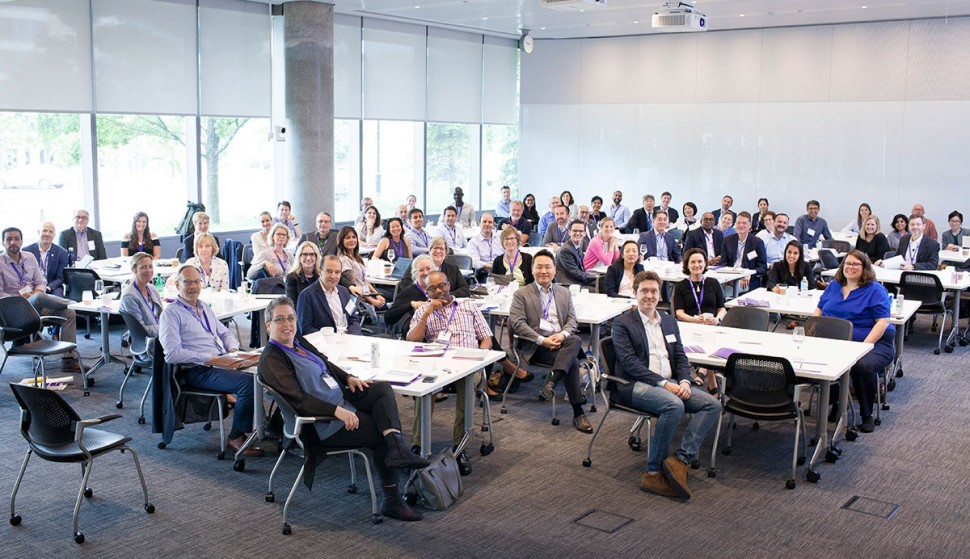More than 80 professors from universities around the world came together at Northwestern University on June 26 and 27 for the third annual Impact & Sustainable Finance Faculty Consortium hosted by the Kellogg School of Management. Faculty from the Netherlands, South Korea, Oregon, Texas, Kenya, California, Canada, Colombia, China, Brazil and beyond came to discuss teaching and research at the intersection of finance and sustainability.
Impact and sustainable finance – the idea that the environmental and social outcomes of investments can and should be considered along with financial returns – has growing importance in the financial industry and in the classroom. Markets are shifting dollars toward intentional and responsible investment and are rewarding companies with strong sustainability practices. Schools worldwide are seeing rising demand for courses that prepare students to work in the fields of impact investment and sustainable finance.
The Consortium
These global changes led a steering committee that included faculty from Northwestern, Harvard, Cornell and Berkeley to found the Impact and Sustainable Finance Faculty Consortium. The Consortium is a community that collaborates with the purpose of advancing the field of impact investing and sustainable finance with a particular focus on how it is taught. The Consortium is funded by the Rockefeller Foundation and led by the Kellogg School of Management.
Today, the Consortium boasts more than 160 members from more than 55 universities across over 16 countries, over half of whom were welcomed to Kellogg and Northwestern’s Evanston campus for the third Annual Convening by founding steering committee members and Kellogg faculty David Chen ’84 and Megan Kashner ’03.
Sessions in the intensive two-day convening included an overview of major changes in the field, recent research of importance, and the latest innovations in the classroom.
“We started this three years ago with a sense of obligation. The field was changing, and the world and students now cared what we were teaching,” Chen said. “And in the last day and a half, we’ve seen that we have up-leveled in response.”
Global Growth
The growth of the field has impacted the composition of the Consortium. One example was the relatively large contingent of new faculty members from across Latin America in attendance at the convening. While only a handful of the 17 attendees from Brazil, Colombia, Mexico, and Ecuador are already teaching full credit-bearing courses on sustainable finance, all those in attendance are planning to launch a course soon.
Global representation in the Consortium encourages the circulation of ideas across borders, helps grow the skill base in new markets, and adds expertise and perspective from the places that many investments have historically targeted.
“We need to find ways to understand the paradigms of different regions as they pertain to sustainable impact,” Chen said. “It was great to hear the Latin American perspective here, and it is incumbent on the Consortium that we bring diverse perspectives again next year.”
Kellogg’s Role
A year of notable growth led Kashner to reflect on Kellogg’s leadership and role as facilitator of the democratization of impact finance expertise.
“The opportunity to help fuel progress in the field of social impact and build a lasting community are our driving forces,” she said. “After a career working for and promoting specific programs, causes or my own work, it’s actually a pleasure to help all these professors prepare their hundreds and thousands of students to go out there and change the way markets value and reward social protections, progress and sustainability.”


